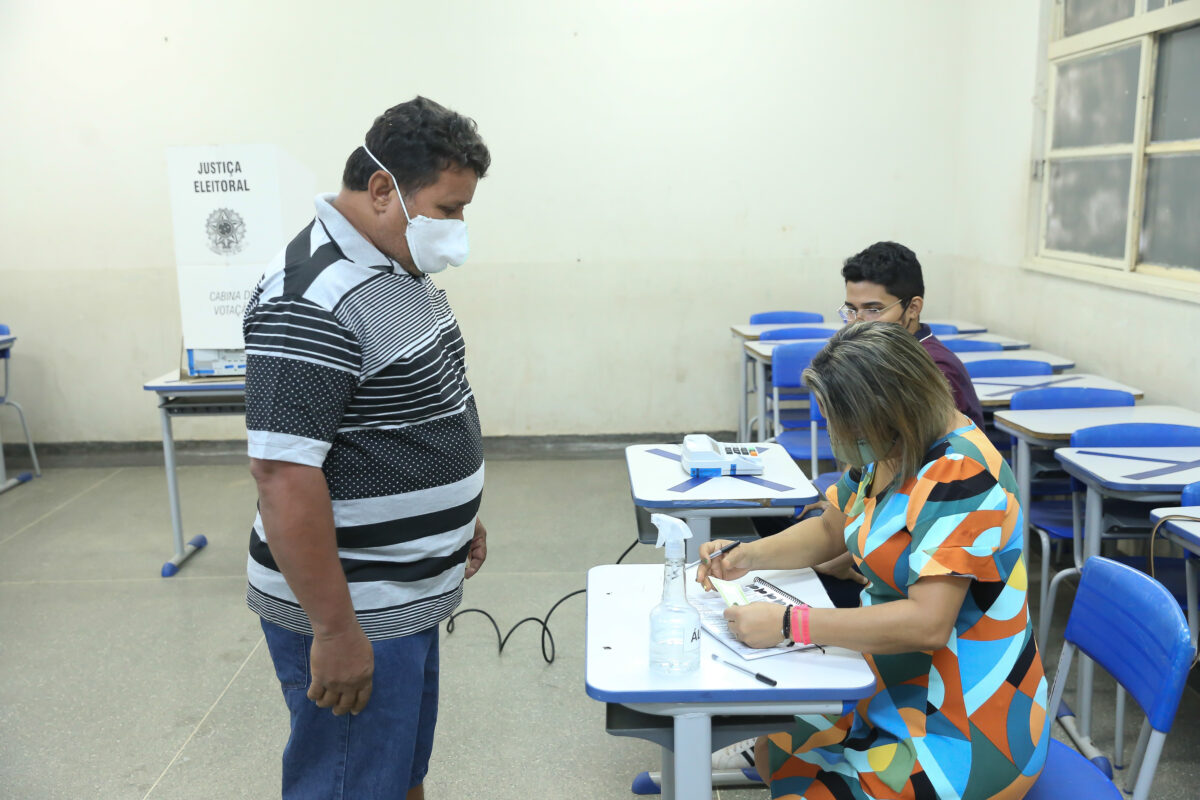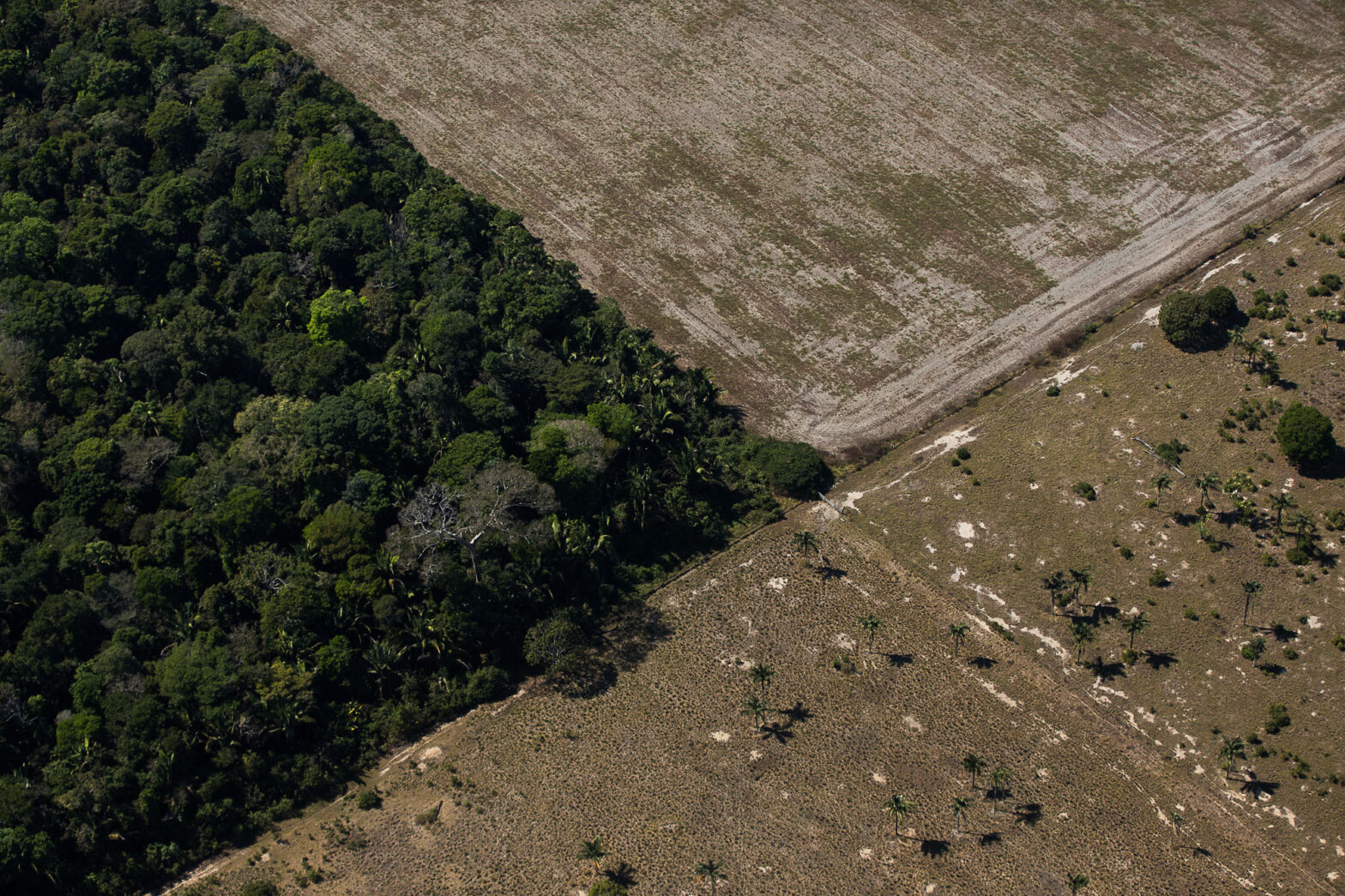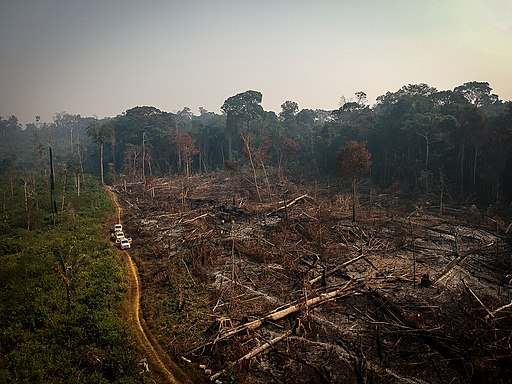An analysis of 55 countries between 2001 and 2018 reveals that Brazil is one of the tropical countries that lost the most forests in electoral years. Experts point out that political disputes are expected to increase deforestation in the Amazon in 2022.
2022 started with a noticeable increase in extreme weather events in Brazil and around the world. Environmental, political, scientific, and agribusiness experts heard by InfoAmazonia and PlenaMata forecast months of political upheaval before and after the elections scheduled for October. At stake is the fate of environments such as the Amazon – and global ecological balance.
Rainfalls and flooding, droughts, and very high temperatures have marked the lives of countless Brazilians since last November, especially in the Southeast, South, and Northeast regions. In Minas Gerais, so far the floods have caused 19 deaths and over 17,000 homeless and displaced people, as Greenpeace’s balance sheet demonstrates. In Rio Grande do Sul, 200 municipalities declared states of emergency because of severe drought.
Even though it already feels climate impacts, Brazil continues to pass bills that can prevent sustainable and safe development in the country. This probably won’t change this year.
“Up to 2021, the setbacks happened mainly through decrees and other government regulations. But since the government’s alliance with the caucus known as the “Centrão“, pressures to approve regressive bills in Congress have increased. This will continue this year, and it is much more difficult to change approved laws than decrees,” said Suely Araújo, former president of Ibama and a specialist in Public Policies of the Climate Observatory, in a debate promoted by the Evolverde agency.
In recent years, Congress has passed or discussed bills aiming to relax the environmental licensing of construction works with socio-environmental impacts, to legalize land grabbed in the Amazon and other biomes, to expand the use of pesticides, allow oil exploration and mining on indigenous lands, and opening the banks of rivers, lakes and other urban Environmental Protection Areas for different projects.
“The agribusiness representatives that are in power and their allies will continue to impose archaic laws and reap their benefits, such as not paying debts, harming the country, and polluting the image of the entire sector. Bills that have the government’s approval come up out of nowhere and are passed without debate with other parties or civil society, ” warned Congress member Rodrigo Agostinho (PSB-SP), the coordinator of the Environmentalist Caucus in Congress.
The first months of the year will be marked by huge efforts to contain new legislative damage. The pressure should cool a little in the months right before the elections, but will come back strong after the election. They will try to approve anything, especially in the face of a defeat (for Bolsonaro)
Suely Araújo, former president of Ibama and Public Policies specialist at the Climate Observatory
The political scenario should become even more dangerous if electoral polls continue to show a growing chance of defeat for Jair Bolsonaro (PL) or another candidate appointed by him. According to Suely Araújo, the scenario may lead sectors linked to the government to promote a last hurrah in 2022, seeking to maximize profits with new legal flexibilities before a possible change of command in Brasília.
“The first months of the year will be marked by huge efforts to contain new legislative damage. The pressure should cool a little in the months right before the elections, but will come back strong after the election. They will try to approve anything, especially when faced with (Bolsonaro’s) defeat,” highlighted Suely Araújo.
ELECTORAL DEFORESTATION
Growing national and global demands for products free from deforestation and other damages to the climate, natural environments, and indigenous and traditional populations have been reinforced by agreements signed since the 26th United Nations Conference on Climate Change in 2021. Brazil continues to do the opposite, accumulating annual deforestation records in the Amazon and other biomes.
“If environmental protection policies and actions continue to be dismantled and governments continue to encourage uncontrolled occupation of land and illicit activities, including in protected areas, we expect continued growth of deforestation rates in the Amazon,” emphasized the doctor in Ecology Henrique Santos Pereira, a professor, and researcher at the Federal University of Amazonas (UFAM).
The problem tends to grow in election years. Studies published in 2018 and 2021 point to trends during elections in tropical countries, in which politicians allow greater use of forests in exchange for support and votes. Deforestation also increases when parliamentarians or members of the Executive try to get re-elected. More contested elections are even more threatening to forests.
Cycles of ‘electoral deforestation’ do not seem to be driven by changes in agricultural policy, but are linked to corruption and campaign financing, suggesting that weak institutional constraints facilitate electoral manipulation of forest resources
Research published in the Journal of Environmental Economics and Management
An analysis published in the journal Biological Conservation showed that 1.5 million km² of forests – an area similar to the Amazon – were lost in 55 tropical countries during elections between 2001 and 2018. The largest losses were recorded in Brazil, Indonesia, and Congo, but grew in 37 (67%) of the nations analyzed in the period. The balance indicated increases of 8% to 10% in deforestation in municipal and national elections in Brazil.
Cycles of ‘electoral deforestation’ do not seem to be driven by changes in agricultural policy but are linked to corruption and campaign financing, suggesting that weak institutional constraints enable electoral manipulation of forest resources” describes the study, published in the Journal of Environmental Economics and Management.
Philip Fearnside, a researcher at the National Institute for Amazonian Research (Inpa), assessed that deforestation increases in electoral years due to the expectation of impunity, forgiveness of fines and debts, and distributions of resources associated with political favors.
“People anticipate the forecast they have of electoral periods deforesting even more in the months leading up to the elections. Without changes in the current production model, harmful to the country and the world, agribusiness and other economic sectors will suffer serious consequences in the face of restrictions on consumption and imports of Brazilian products associated with deforestation,” he said.
Eduardo Bastos, from the Sustainability Committee of the Brazilian Agribusiness Association (ABAG), believes that electoral debates associated with international pressure to end deforestation will highlight the environmental agenda among candidates in 2022, even considering the persistence of the COVID-19 pandemic. “Candidates who want votes, especially among urban youth, will need to nod towards this agenda,” he said.
Part of the Brazil Climate, Forests, and Agriculture Coalition, Bastos projects new records for agribusiness production and exports this year, even with climate impacts, and argues that the debate to expand the sustainability of the sector should take place now and not near the end of the decade, the deadline in the agreements signed at COP26 for the world to eliminate deforestation of tropical forests.
“There are costs to end deforestation and contribute to climate agreements, as requested by buyers. Producers need to be compensated to maintain forests that they could deforest, as prescribed in the legislation. We can use degraded areas and increase agricultural productivity without deforestation. This may be a path of no return, but Brazilian society needs to decide the directions its development will take,” he highlighted.
According to Suely Araújo, from the Climate Observatory, it is essential that candidates from the socio-environmental area, especially, have concrete proposals on their platforms and campaigns so that they can have greater chances of holding an elected position.
“They will need to have more than speeches and clearly state what they want to replace the current model with, something which may be different to previous states. Policies and agencies that have been weakened or dismantled by this government, such as the Conama (National Environmental Council), may be recovered with better terns than previously to meet the demands of Brazilian society,” he added.
Story by InfoAmazonia for the PlenaMata project.





